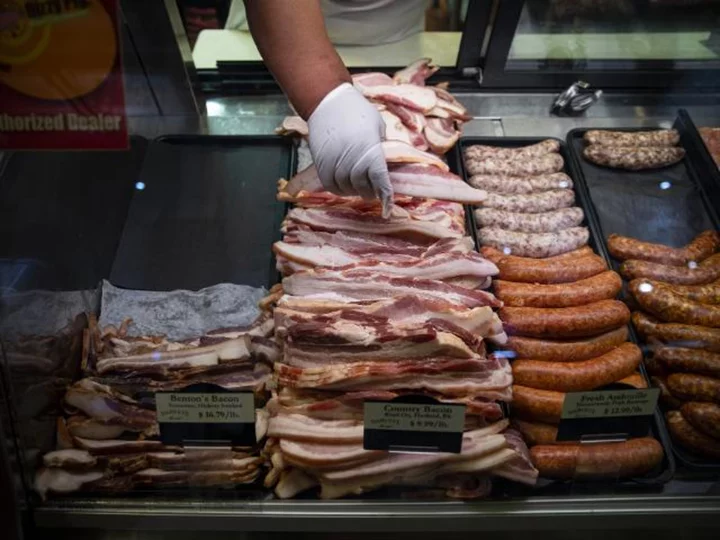As overall US inflation heated up last month, consumers got some relief at grocery stores.
Grocery price increases in the United States slowed down in August, up just 0.2% for the month. That's an improvement from July, when grocery prices were up 0.3%, according to the latest Consumer Price Index, released Wednesday. For the year, grocery prices are up a modest 3%. This time last year, prices were up 13.5% compared to 2021.
But just how much inflation relief you got at grocery stores last month depends on what was in your shopping cart.
You needed to bring home more of the bacon to buy more bacon
Bacon prices jumped by 4% last month, the biggest monthly increase since June 2020. The increase comes as wholesale pork belly prices -— the cut of meat used to make bacon — hit a near-record high of $2.37 a pound last month, according to data from the US Department of Agriculture. Prices have since come down by about $1 a pound.
Overall pork prices also increased by 2% last month.
The August jump in prices likely has to do with an animal-welfare law in California. It requires that pigs have at least 24 square feet of space in their enclosures for their meat to be sold in the state, Bank of America analysts said in a recent report. That law went into effect at the beginning of July following a Supreme Court ruling.
The Bank of America analysts said last month they expect bacon prices to cool down.
But despite the August increase, consumers are still paying less for bacon than they did last year, with prices down 6.4% on an annual basis.
What else got more expensive
Pork wasn't the only food that got pricier last month. Shoppers paid 3.2% more for salad dressing, 2.8% more for shelf-stable fish and seafood and 2.4% for uncooked beef steaks.
Prices for food sold in stores are up 3% year over year, but the biggest increases are in the frozen foods aisle.
Frozen juices and drinks are up 20.4% compared to a year ago. It's the biggest annual price increase across all food sold in stores that the CPI tracks. Frozen vegetables are up 14.7% for the year, the second-biggest annual increase for that category. These price hikes may have to do with the record heat experienced globally this summer.
What got cheaper last month
Eggs continued to get cheaper. Last month their price fell by 2.5%. Prices are down by 18.2% compared to last year, when a deadly avian flu wiped out a significant number of egg-laying hens, reducing egg supplies. On top of that, farmers had to deal with inflated feed and fuel costs.
On a monthly basis, hot dogs prices fell by 3.1%, prepared salad fells by 2% and butter fell by 1.8%.









